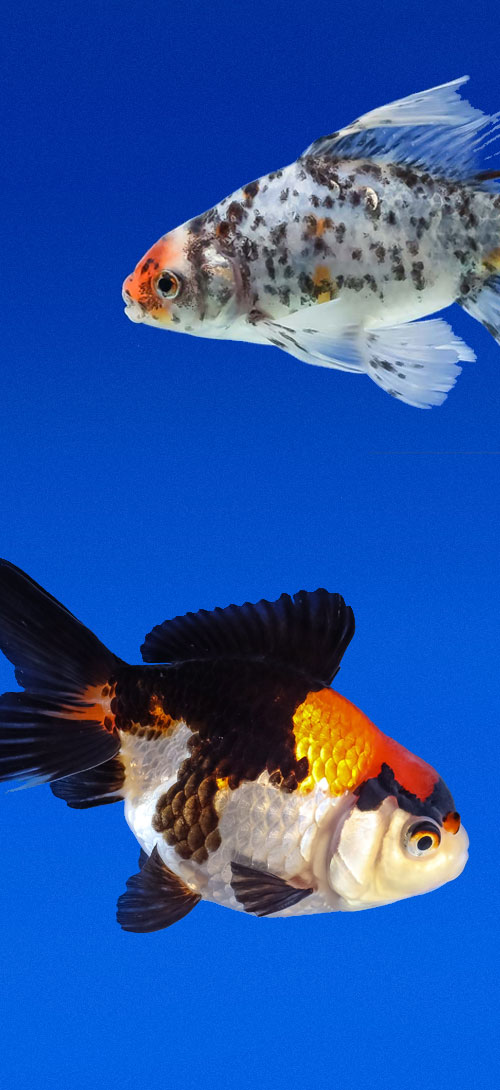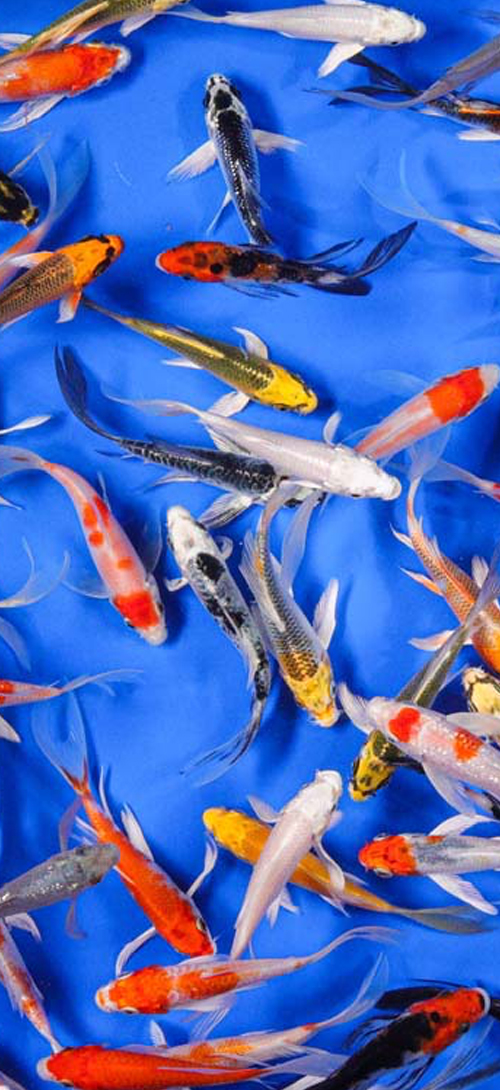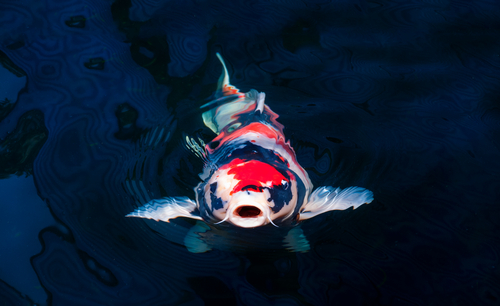Koi Fish Facts
Koi Fish Stress
When Hans Selye said: “Its not stress that kills us, it is our reaction to it” he probably didn’t have koi owners and their pets in mind, but it definitely applies to that relationship.
Recognizing those signs of koi fish stress, as well as identifying the various issues that might cause it in your living jewel, will go a long way in helping them to enjoy long, healthy and happy lives.
Pond-dwelling koi don’t have the same luxuries as their wild counterparts: to be able to simply seek a different setting when they sense shifts in water conditions. It is why it is so important to be diligent with pond maintenance as well as being able to recognize symptoms of potential distress.
Some symptoms of koi fish stress:
- excessive flashing (turning sideways and swimming rapidly in one direction)
- jumping
- scratching/scraping
- sluggishness/lying at the bottom of the pond
- swimming with the head down
- swimming erratically
- gasping for air
- keeping away from other koi
- hiding
- dull coloration
- appetite loss
- tattered fins
- pectoral fins pulled tightly to the body
KoiCrisis.com offers a look at how each of these behaviors correlates to the potential stressors that can be affecting koi. Here is a list for some of the most common koi fish stress factors.
Water Quality
This is the first thing that should be checked before any other suspected stress or illness is considered. Oftentimes, a pond whose water quality is out of its normal parameters is the culprit. It is important to check this off the list of potential causes first. If measures are taken to combat the suspected stressor and it is not the correct causative agent, it can prove fatal to your koi.
Nitrates, dissolved oxygen, ammonia and pH at excessive or incorrect levels are all reasons for your koi to exhibit symptoms of stress.
Rainwater can be responsible for koi stress, too, as it can change both the water temperature in a short amount of time and alter the pH. Additionally, ground-level runoff can affect the balance in the water quality by introducing toxins from things like fertilizer, mulch, weed-killer and even pressure treated lumber.
Over-medication or treatments not used in correct doses can cause discomfort, stress and sometimes be lethal. Be sure that you know the proper volume of your pond or tank before adding anything to it.
Overcrowding is another thing to consider as it is a contributing factor to excess waste and diminished water quality, which will cause koi fish stress. Check to see if you are within size/number of fish-to-tank capacity recommendations.
Temperature Change
Seasonal water temperature changes are normal and are ordinarily gradual. However, spikes in temperature change aren’t good for a fish that doesn’t like sudden and wild shifts in its natural environment. If you are using temperature changes to combat illness, it needs to be adjusted gradually.
Predation
A scared koi is a stressed koi. Similar to being introduced to an unfamiliar environment, this sense of insecurity will translate into a panicked and flighty behavior that can affect the koi’s disposition and overall health.
Parasites and Infections
There is a broad range of parasites (protozoan, tremetode and crustacean) and infections (bacterial, viral and fungal) that can affect your koi fish and cause them to exhibit any number of stress symptoms. Make sure to check other potential causes of stressed behavior before using chemicals to treat for infestations or infections.
Food types
Believe it or not, sometimes your choice of food can affect your fish. Flashing during or directly after feeding can be a sign that the food (usually flakes and powdery or oily foods) is getting lodged in the gills and irritating them. Changing the foodstuff should stop it from happening. A balanced diet with the proper nutrients is also a great way to help your koi stave off ailments.
A stressed koi is an unhealthy koi. Increased stress leads to a depressed immune system. An immune system in distress leaves your koi defenseless and open to a number of health issues. Learn to recognize your koi’s tells and be ready to act accordingly.
It can be a slow process to identify the stressor and remove it as well as treat your koi fish properly. Be quick to identify the problem correctly but be patient with the process of getting your koi back to full health.
NextDayKoi.com has a vast selection of koi fish available for delivery with some of the most competitive shipping rates in the industry. We back our commitment to excellence with a Live Arrival Guarantee that covers all fish for up to 14 days after the arrival of your shipment. Contact us to see how we can help to stock your pond or tank.




